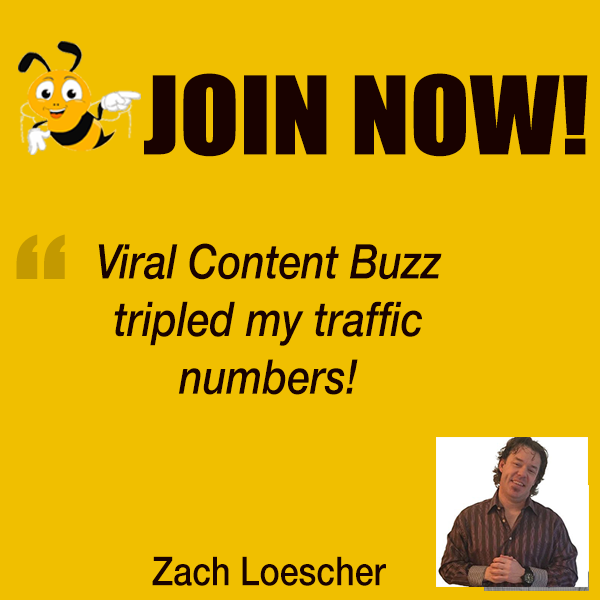 Legal aspects of blogging may seem overwhelming. Luckily we have a lawyer to talk to today that will answer our and your blogging questions!
Legal aspects of blogging may seem overwhelming. Luckily we have a lawyer to talk to today that will answer our and your blogging questions!
***Add #VCBuzz chats to your calendar here.
***Please sign in here to follow the chat -> twchat.com/hashtag/vcbuzz
About Kerry
Kerry O’Shea Gorgone @kerrygorgone is lawyer, professional interviewer, writer, educator, and speaker. Director of product strategy, training, at @MarketingProfs, and host of the Marketing Smarts podcast.
Kerry frequently speaks on topics relating to marketing and social media law, including intellectual property, disclosure requirements for brands and bloggers, and contest regulations.
Connect to Kerry on LinkedIn
Questions we discussed
Q1 With legal background, how did you get into marketing? What’s your career story?
I was in marketing before law school. After graduating #1, I clerked for the NH Superior Court, then joined a big firm.
Then I transitioned to a smaller firm, then got into teaching. I taught Marketing Law and Business Law to undergrads.
About 8 years ago, I moved to Florida and started teaching full time (Intellectual Property, then New Media Marketing) @fullsail
But I’m a podcaster from way back (2005), and I love creative work, so even when practicing law, I was thinking of marketing. Event videos, the firm’s website, etc. Always thinking of marketing.
@KerryGorgone Your passion will hunt you no matter what you do, right? 🙂 #vcbuzz
— Sana Knightly (@SanaKnightly) June 27, 2017
@SanaKnightly You know it! The little voice inside you keeps piping up. That's how you know your path! #vcbuzz
— Kerry Gorgone, Editor & Writer. She/Her. (@KerryGorgone) June 27, 2017
I started writing for industry blogs like @MarketingProfs on the legal aspects of marketing, attending events with press passes.
Then I started speaking at events and educating people on blogging and marketing law.
Q2 What types of legal disclaimers should bloggers be using? Why do they need those?
Bloggers should use unique disclosures for every piece of sponsored content.
By “sponsored,” I mean anytime the blogger has a connection to a brand that’s not obvious to the reader (which is nearly always).
YES! So many bloggers drop the ball on disclosure, it makes no sense, always disclose, don't want for the brand to remind you to! #vcbuzz https://t.co/P7tGBP7DDC
— Mack Collier (@MackCollier) June 27, 2017
@MackCollier That's a huge mistake! Smart brands work with bloggers who disclose. Brands are the easier target for the FTC! #vcbuzz
— Kerry Gorgone, Editor & Writer. She/Her. (@KerryGorgone) June 27, 2017
Bloggers need to alert readers to the fact that they received a free trip (or a free sample or compensation or whatever).
Bloggers must trust readers to decide whether any compensation or samples impacted the blogger’s opinion. Readers make the call.
Types of disclosures vary. You can use very short ones on Twitter, longer ones where space permits (on social sites or your blog). The important thing is to disclose any sponsored content wherever you post it.
The main thing is to understand that, even if the platform has a limited character count, you must disclose. #vcbuzz
— Kerry Gorgone, Editor & Writer. She/Her. (@KerryGorgone) June 27, 2017
Telling readers when content is sponsored builds trust, but it’s also required by the FTC. Telling readers when content is sponsored builds trust, but it’s also required by the FTC.
A2: It's important to specify whenever content is sponsored, otherwise it could get you into trouble. #VCBuzz
— Express Writers | Your Content Writing Partner (@ExpWriters) June 27, 2017
A2. They should really trademark their blog and say any content will not be reuse without permission #vcbuzz
— Cheval John, Social Media Professional (@chevd80) June 27, 2017
Trademark is a separate issue. I do recommend bloggers TM their blog names if possible. But reuse of content is copyright. No doubt that’s frustrating. Send them a written request to remove your content from their site.
Q3 How to compile a good legal disclaimers? Should bloggers turn to the lawyers? Is it a good idea to use online generators?
Any clear language will do. FTC has indicated that vague hashtags like #spon are not good enough. Could ask a lawyer… But “sponsored” or “ad” is typically clear to readers, as is “client” or “former client” or “employer.”
For a blog post or video, disclose in full what you received, if anything. Use your own words. Legalese not required. In video posts, disclose at the beginning or display the disclosure throughout at the bottom. Can’t assume people watch it all!
Use clear language. You want the average person to understand what you’re saying.
A3 "@Dodge gave me this new Challenger Hellcat in exchange for this review." P.S. Dodge, can I please have one? Pretty please? #vcbuzz
— Kerry Gorgone, Editor & Writer. She/Her. (@KerryGorgone) June 27, 2017
A3 There are tools that help you to create disclosures, like this one. #vcbuzz pic.twitter.com/pTZR7EIdti
— Kerry Gorgone, Editor & Writer. She/Her. (@KerryGorgone) June 27, 2017
But you could create your own easily enough, unique to each post. Like @SteveGarfield does! #vcbuzz pic.twitter.com/ZhIhPiIwyC
— Kerry Gorgone, Editor & Writer. She/Her. (@KerryGorgone) June 27, 2017
You don’t have to be a lawyer to clearly explain what you received in exchange for your content. Just be honest.
A3: You can keep it simple by using clear language in your disclosure. Alternatively, there are tools online to generate docs. #vcbuzz
— Express Writers | Your Content Writing Partner (@ExpWriters) June 27, 2017
Worth mentioning: if you didn’t receive anything from a brand and have no relationship (past or present), no disclosure is required. I chuckle when I see “I didn’t get anything in exchange for this post, I just love Ivory Soap” or whatever.
YES! We love authenticity! #VCBuzz https://t.co/AKjqmALD1i
— Mack Collier (@MackCollier) June 27, 2017
Ask yourself “do I have a relationship with this brand that readers wouldn’t know about?” The answer’s almost always yes. Average readers have no idea that bloggers receive free goods or trips to post.
If most readers knew anything about influence marketing, they’d probably start their own blogs! “Get me some of that swag!” 🙂
A3. You always have to be honest and mention this is a sponsored post at the beginning of the article if you are getting paid #vcbuzz
— Cheval John, Social Media Professional (@chevd80) June 27, 2017
Make disclosures impossible to miss. Big font, pop-up window or up at the top. Don’t let people click away w/o seeing it.
Great point, it has to be very easy for the reader to know that the content is sponsored or blogger has relationship with brand #vcbuzz https://t.co/ba3Wyxt9fy
— Mack Collier (@MackCollier) June 27, 2017
It’s not about using special legal terms. Disclosure is about respecting readers enough to tell them you’re working with a brand.
I love @ChrisBrogan and @SteveGarfield's disclosures. Chris will say "pitchy pitchy selly selly" to let people know he was paid. 🙂 #vcbuzz
— Kerry Gorgone, Editor & Writer. She/Her. (@KerryGorgone) June 27, 2017
Example of a @SteveGarfield disclosure. I love that he colors. 😉
The Little Mermaid Coloring Book is short on words and long on detailed illustrations. #SPONSORED #REVIEWhttps://t.co/IfZYdhzUyP
— Steve Garfield (@stevegarfield) June 15, 2017
Q4 What are some good online resources bloggers should read on legal aspects of blogging?
My blog covers theses topics.
I’ve also addressed several legal issues on @MarkWSchaefer’s blog.
And @MackCollier‘s been gracious enough to have me on his site now and then!
I can never say no to you! #vcbuzz https://t.co/BmMEMB2gXX
— Mack Collier (@MackCollier) June 27, 2017
Another great legal blogger is @SaraFHawkins. She practices currently (I just train/speak). Love her!
Also check out FTC site. FTC first updated its rules to reflect the digital reality back in 2013. Since then they’ve gotten progressively clearer on rules. FTC sent letters!
A4 You can follow my Twitter list of people who tweet about legal issues: https://t.co/knGWWzyTiv #vcbuzz
— Kerry Gorgone, Editor & Writer. She/Her. (@KerryGorgone) June 27, 2017
Some FTC content can seem complicated. When in doubt, disclose (early and often) and let readers know what you received.
A4. It is truly interesting to see what is happening this year with influencer marketing and the ftc #vcbuzz
— Cheval John, Social Media Professional (@chevd80) June 27, 2017
Q5 We love tools! Please list your favorite blogging tools?
Tools! There are so many. First, @IanClear’s RazorSocial blog is my favorite source for info on tools.
I use @trello to keep track of post ideas, then I archive the cards once I’ve written the post. I especially love @Trello because you can attach images, links, checklists, etc. to each card, organize cards into boards & share.
I use the Hemingway App when I think my post is too wordy. @AnnHandley told me about it!I mean, @annhandley told me about the Hemingway App. She didn’t say I was wordy! (Although maybe it was implied?) 😉
Sometimes I feel fresh out of creativity. Portent is great when I need ideas!
And Grammarly keeps me grammatically honest. (You gotta know the rules before you can break ’em.) 😀 Grammarly is great for some people who otherwise would write then immediately publish. *ahem* @MackCollier 😉
I do my best/only proofreading after I publish 🙂 #vcbuzz https://t.co/v3k1AAPoLR
— Mack Collier (@MackCollier) June 27, 2017
At that point, you might as well wait! Some helpful reader will point out your mistakes, no? 😉
Definitely our favorite platform! #vcbuzz
— Express Writers | Your Content Writing Partner (@ExpWriters) June 27, 2017
Blogging tools abound, but the best tools are the ones that work for you. A super techy tool could be great, but I won’t use it.
Our previous blogging chats:
- How to Build a Life of Your Dream with Smart Blogging w/ @RyanBiddulph #VCBuzz
- The Art of Business Blogging with Henneke Duistermaat @HennekeD #VCBuzz
- Blogging as a Single Parent with @DaveTaylor #VCBuzz
- How Blogging Can Make Introverts More Remarkable w/ Patricia Weber @patweber #VCBuzz
- Build Up a Blogging Business with @AndyNathan #VCBuzz




Leave a Reply